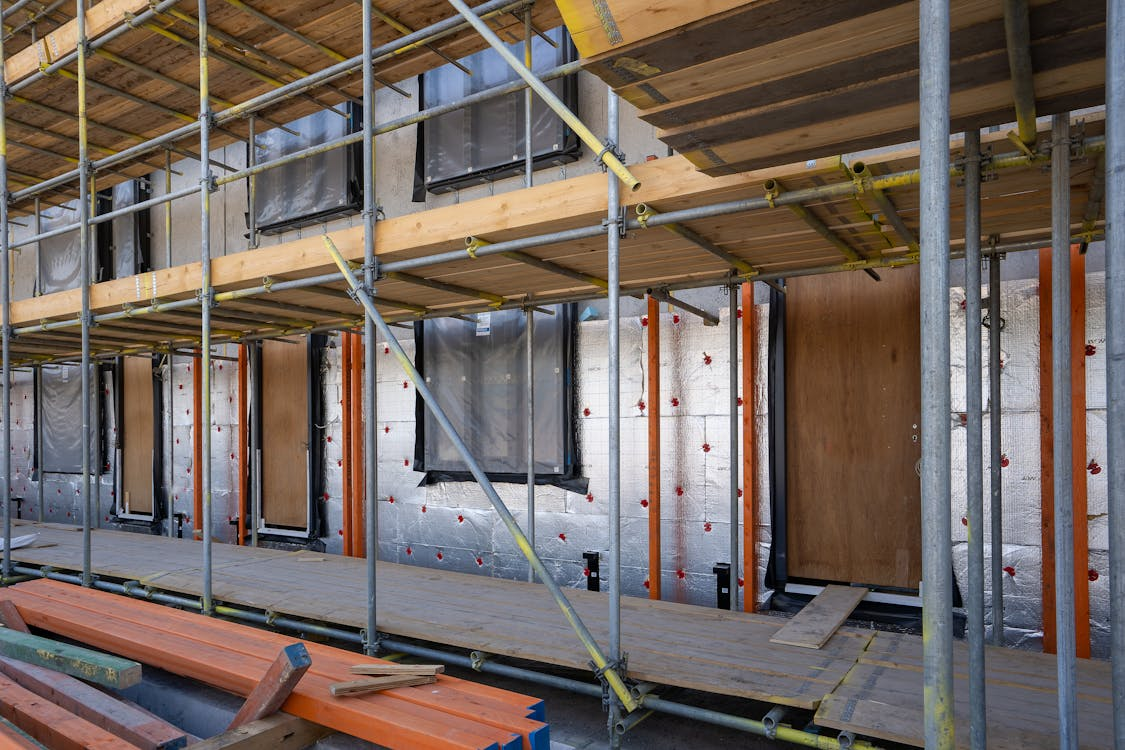Understanding the differences between residential and commercial real estate from a borrower’s perspective is crucial for making informed investment decisions.
This article explores these distinctions, particularly from the standpoint of working with a lending partner like InstaLend:
Residential Real Estate Loans
Residential real estate loans are designed for individuals or small investors focusing on properties that serve as primary residences or rental homes. This sector is characterized by its focus on providing housing, whether for the owner or tenants.
In-Depth Look at Residential Real Estate Loans
- Purpose of Loans: These loans are often utilized for purchasing new homes, refinancing existing mortgages, or funding home improvement projects. They play a crucial role in helping individuals and families achieve homeownership or generate rental income.
- Types of Residential Loans: The spectrum includes traditional mortgages, home equity loans, and refinancing options. Each type caters to different needs – from acquiring property to tapping into the equity built up in a home.
- Loan Approval Process: The process involves assessing the borrower’s creditworthiness, the property’s value, and the loan-to-value ratio. Lenders, like InstaLend, focus on the property’s potential as collateral, simplifying the approval process for borrowers.
- Interest Rates and Terms: Residential loans generally offer more favorable terms and interest rates. Fixed-rate mortgages provide stability in payments, while adjustable-rate mortgages might offer lower initial rates. The terms can vary widely, offering flexibility to borrowers.
- Impact of Credit Scores: A borrower’s credit score plays a significant role in determining loan eligibility and interest rates. Higher scores can lead to more favorable loan terms.
- Loan-to-Value Ratio: This ratio is a critical factor in loan decisions, indicating the loan amount in relation to the property’s value. A lower ratio often means more favorable loan terms.
- Regulations and Protections: Residential loans are subject to various federal and state regulations, ensuring fair lending practices and protecting borrowers from predatory lending.
- Tax Implications: Interest paid on residential real estate loans, especially primary residences, often qualifies for tax deductions, providing an additional financial benefit to borrowers.
- Investment Perspective: From an investment viewpoint, residential real estate can offer long-term value appreciation and stable rental income, making it an attractive option for individual investors and small investment groups.

For borrowers considering residential real estate, understanding these nuanced aspects is critical. Whether it’s for purchasing a dream home or an investment property, residential loans offer a pathway to achieving real estate goals. With the support of a partner like InstaLend, borrowers can navigate this landscape with greater ease, benefitting from their expertise and borrower-friendly loan terms.
Commercial Real Estate Loans
Commercial real estate loans cater to businesses and investors interested in properties used for business purposes. This sector includes a wide range of property types, such as large apartment complexes, office buildings, retail centers, and industrial properties. These loans are essential for investors aiming to develop, purchase, or renovate commercial properties.

Detailed Exploration of Commercial Real Estate Loans
- Purpose and Use: Commercial loans are primarily used for acquiring new properties, refinancing existing properties, or funding renovations and expansions of commercial spaces. They are pivotal for business growth, allowing investors to leverage property for capital.
- Types of Commercial Loans: This category includes traditional commercial mortgages, bridge loans, and construction loans. Each serves different needs, from long-term financing to short-term funding for immediate needs.
- Loan Approval Criteria: For commercial loans, the focus is less on the borrower’s personal financial history and more on the income-generating potential of the property. Lenders evaluate the property’s current and projected cash flows, its location, and market conditions.
- Terms and Rates: Commercial loan terms are generally shorter than residential loans, reflecting the investment-driven nature of these properties. Interest rates are typically higher due to the increased risk associated with business ventures.
- Loan-to-Value and Debt-Service Coverage Ratios: Lenders assess the loan-to-value ratio to understand the risk involved. Additionally, the debt-service coverage ratio is crucial in determining if the property’s income can cover the loan payments.
- Flexibility and Customization: Commercial loans offer flexibility, with lenders like InstaLend providing customized solutions based on the specific needs of the investment or business project.
- Impact of Market Trends: Commercial real estate is heavily influenced by economic trends, market demand, and consumer behavior, making the understanding of market dynamics vital for borrowers.
- Investment Strategy Considerations: Borrowers must have a clear investment strategy, considering factors like property location, tenant mix, and market conditions. A well-thought-out strategy can significantly impact the success of the investment.
- Networking and Relationships: Building relationships with lenders and understanding their offerings can provide a competitive edge. A lender that understands your business model and investment goals can be a valuable asset.
Commercial real estate loans are a key component in the world of real estate investing. Understanding the nuances of these loans can help investors and businesses make informed decisions. With the right lending partner, like InstaLend, investors can navigate the complexities of commercial real estate financing, leveraging these loans to maximize their investment potential and business growth.
Choosing InstaLend for Real Estate Loans
InstaLend, as a private lending partner, offers unique advantages for both residential and commercial real estate borrowers:
- Streamlined Processes: InstaLend provides a simplified loan process with minimal paperwork, making it easier for borrowers to secure funding.
- Asset-Based Lending: Unlike traditional lenders, InstaLend doesn’t require income verification, focusing on the property’s value instead.
- Fast Loan Commitments: InstaLend can commit to a loan the same day and close within days, a significant advantage for time-sensitive investments.
- No Prepayment Penalties: For fix and flip loans, borrowers can repay without incurring additional fees.
The choice between residential and commercial real estate loans depends on your investment goals, property type, and financial situation. With a partner like InstaLend, both types of borrowers can benefit from competitive rates, quick closings, and tailored loan solutions. Whether you are a first-time homebuyer or a seasoned commercial investor, understanding these differences is key to navigating the real estate landscape effectively.









